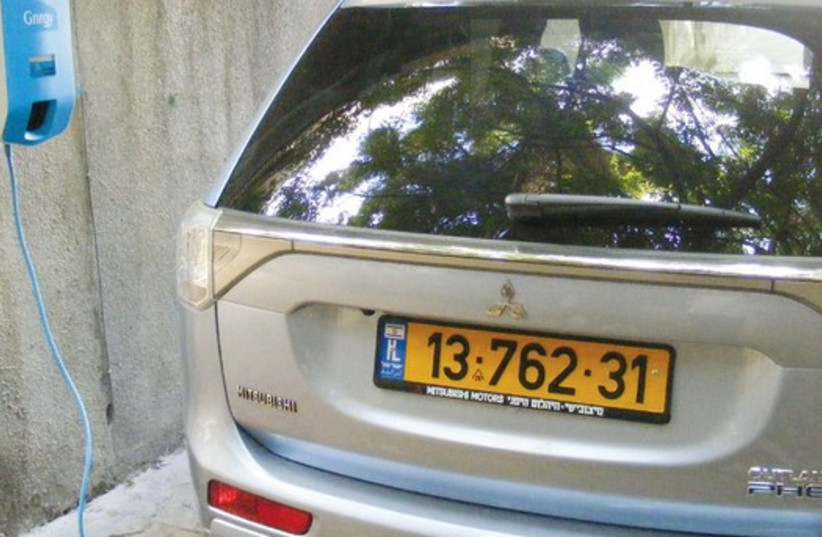Three years ago, Mitsubishi Corporation marked Israel as a promising hub for innovation, and decided to expand the small liaison office it had maintained there for years, and focus its operations on actively seeking local technologies for investment and partnership. A senior Mitsubishi executive, Takashi Kai, was chosen to serve as Head of the corporation's Tel Aviv liaison office.
In an exclusive interview with The Jerusalem Post, Kai detailed corporate Japan's interest in Israel, how the two countries complement each other wonderfully, and how Japan could help inspire peace with Iran.
Despite his claim that he is “quite the typical Japanese businessman,” Kai has led a storied and well-traveled career thus far. For the past 12 years he has served as a resident emissary of Mitsubishi to the Middle East, working from Iran, the United Arab Emirates, Turkey and now Israel.
“I've been with Mitsubishi for almost 25 years, and I’ve spent more than half of my career in the Middle East region - Turkey for five years, Israel for three and a half years, Iran for three years and Dubai for one. To some extent, I can say that I myself am a Middle Eastern man,” he joked.
Kai’s goal in Tel Aviv is to conduct on-the-ground meetings and research the Israeli business ecosystem, in order to “present how fascinating, how attractive, how active and how useful this ecosystem is to Mitsubishi Corporation.” He believes that Israeli and Japanese business models could do very well in a partnership, due to their complementary cultures.

“Mitsubishi is a very big company, something like a dinosaur. We are too slow, and sometimes conservative, so we fall short of the standard of agility. We have so many complicated and lengthy internal procedures to even make a $1 million investment in something.”
Takashi Kai, Mitsubishi Corporation Senior Executive
“Japanese corporations fall short of agility,” he explained. “Mitsubishi is a very big company, something like a dinosaur. We are too slow, and sometimes conservative, so we fall short of the standard of agility. We have so many complicated and lengthy internal procedures to even make a $1 million investment in something.”
Israel and Japanese companies
In contrast, he noted, that kind of lumbering pace is rarely seen in Israeli startups. “In that ecosystem, it's very quick and they are very agile. Israeli companies are very good at making one from zero. Japanese companies are very good at making 100 from one: scaling up is our advantage. So Israeli startups and Japanese corporations together can be a very good, complementary, ideal relationship,” he said.
As such, Kai has helped Mitsubishi manifest several deals: in the past three and a half years the corporation has materialized two direct investments, and six indirect investments. At present, Mitsubishi Corporation is focused on partnering in two industries: automotive tech and agri-tech.
Regarding the latter, Kai pointed out that agri-tech could solve a major problem arising in Japan. “The food and agriculture industry is now a big social problem in Japan because the population of farmers is decreasing,” he said. “On the other hand, there is a big demand for green agriculture in the system.” Investing in Israeli technology could solve both issues.
That is, however, if they can overcome their more social-cultural differences. Besides their blatant openness, Kai noted that he was again surprised by the Israelis’ attitude of wasting no time getting things done. “Japanese businessmen take a long time to break the ice. ‘What's your name? Where are you from? Which sushi do you like? Oh, tempura?’ Meanwhile, the Israeli style is so agile. You start a meeting and five minutes later - ‘Are you gonna invest in my company or not? Do you have any proposals for me?’ I was so surprised by this kind of agility and quickness.”
Besides business opportunities, Japan may have more to collaborate on with Israel. Kai explained that during his time in Iran, he witnessed very little hostility toward Israel from younger generations. “I think that in a short period, Iran and Israel will shake hands with each other - because [youngsters in both nations] have no bias and they have no antagonism toward each other,” he said.
Kai noted that Japanese culture is a common ground that he has seen youngsters from both countries gravitate toward. “A common point is that they like Japanese culture and Japanese people. They always welcomed us with heartwarming hospitality. This is true in Israel as well. I think Japan can play a great role in this diplomatic situation. Together, Israel, Japan and Iran could forge some very good relationships in the future. I do hope so.”
